The National Football League has said players can now protest during the US national anthem, as rallies continue against police brutality and racism.
"We were wrong for not listening to NFL players earlier and encourage all to speak out and peacefully protest," NFL Commissioner Roger Goodell said.
The NFL had banned its players from dropping to one knee, a practice started by Colin Kaepernick in 2016.
Meanwhile, a large protest is expected in Washington DC on Saturday.
The demonstration is the latest in a series of protests against racial discrimination that have been held across the US following the death of George Floyd in Minneapolis on 25 May.
Mr Floyd, an unarmed black man in handcuffs, died after a white policeman knelt on his neck for nearly nine minutes. The officer has been charged with murder while three colleagues stand accused of aiding and abetting.
On Friday, Minneapolis officials said police would be banned from using neck restraints and California pledged to follow suit.
What did the NFL commissioner say?
In a video, Mr Goodell denounced racism in the US in comments that came shortly after a number of players urged the NFL to take a stronger stance on racism and police brutality in the country.
Media playback is unsupported on your device
"We, the National Football League, believe black lives matter. Protests around the country are emblematic of the centuries of silence, inequality and oppression of black players, coaches, fans and staff," he said.
"I will be reaching out to players who have raised their voices and others on how we can improve."
But on Friday President Donald Trump again voiced his opposition to such protests, saying on Twitter: "We should be standing up straight and tall, ideally with a salute, or a hand on heart. There are other things you can protest, but not our Great American Flag – NO KNEELING!"
More on George Floyd's death
What's the story behind Kaepernick's kneeling?
The practice of kneeling during the customary pre-game playing of the national anthem was started by black player Colin Kaepernick in 2016 in protest against racial injustice.
A number of other players soon joined Kaepernick, who was a quarterback for the San Francisco 49ers at the time.
He became a free agent after the 2016 season and remains unsigned. Kaepernick filed a grievance against NFL owners in October 2017, believing they were conspiring not to hire him because of his kneeling protests.
The two sides resolved the grievance in February under a confidentiality agreement.
What else is happening in the US?
On Friday, the Minneapolis City Council and the Minnesota Department of Human Rights agreed to ban police neck restraints and chokeholds.
The new policy, which will be enforceable in court, requires any officer regardless of rank to verbally and physically intervene if they witness a colleague using such unauthorised force.
Meanwhile, California's Democratic Governor Gavin Newsom said he would move to end state police training in the use of the "carotid restraint".
San Diego Police Department banned the technique this week in response to the nationwide uproar over events in Minneapolis.
Officials in New York, San Francisco, Chicago and Los Angeles have all previously taken steps to ban or limit the use of chokeholds by members of their police departments.
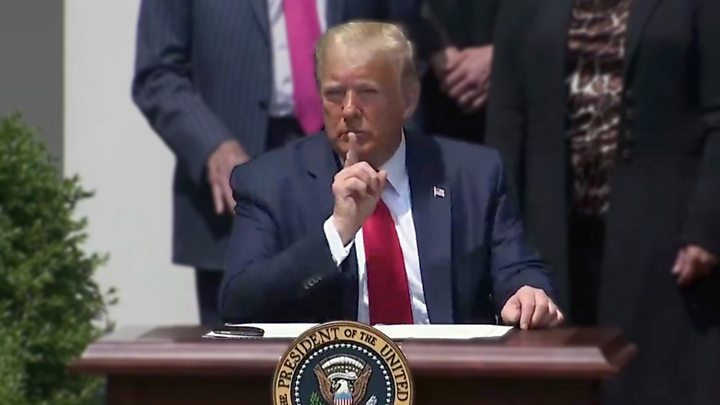
Media playback is unsupported on your device
In a separate development, President Trump was condemned by his Democratic challenger Joe Biden for invoking Floyd's name in a speech to mark a surprise US jobs rebound.
US protests timeline
25 May 2020
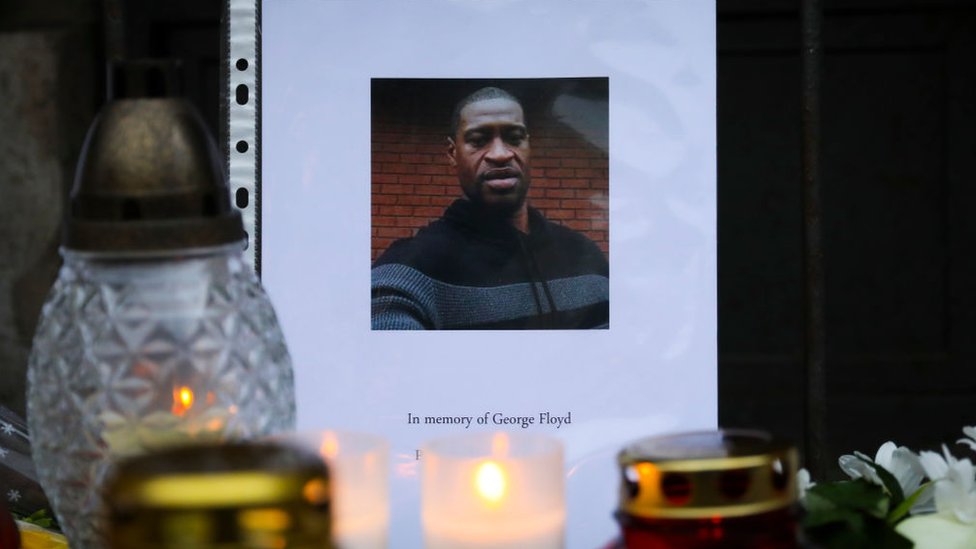
George Floyd dies after being arrested by police outside a shop in Minneapolis, Minnesota. Footage shows a white officer, Derek Chauvin, kneeling on Mr Floyds neck for several minutes while he is pinned to the floor. Mr Floyd is heard repeatedly saying "I cant breathe". He is pronounced dead later in hospital.
26 May
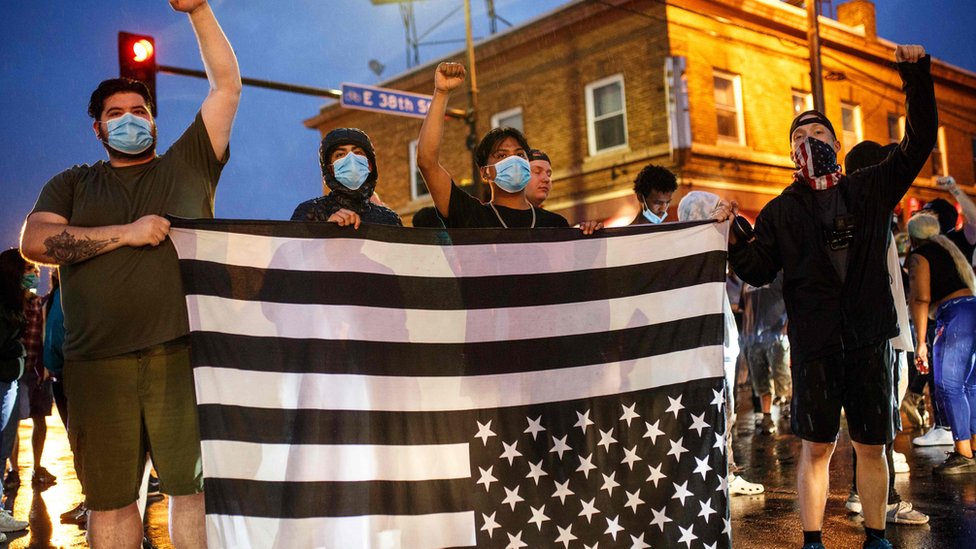
Four officers involved in the arrest of George Floyd are fired. Protests begin as the video of the arrest is shared widely on social media. Hundreds of demonstrators take to the streets of Minneapolis and vandalise police cars and the police station with graffiti.
27 May
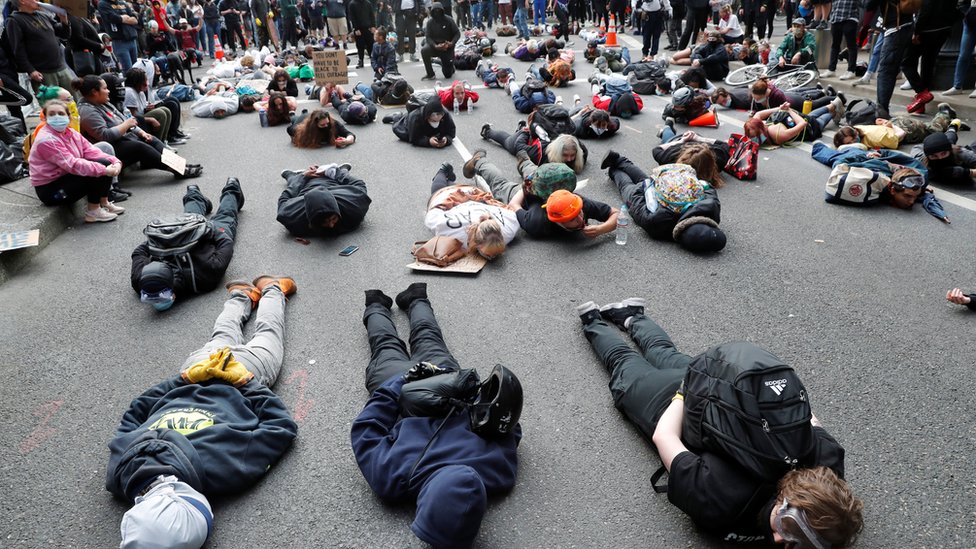
Protests spread to other cities including Memphis and Los Angeles. In some places, like Portland, Oregon, protesters lie in the road, chanting "I cant breathe". Demonstrators again gather around the police station in Minneapolis where the officers involved in George Floyds arrest were based and set fire to it. The building is evacuated and police retreat.
28 May
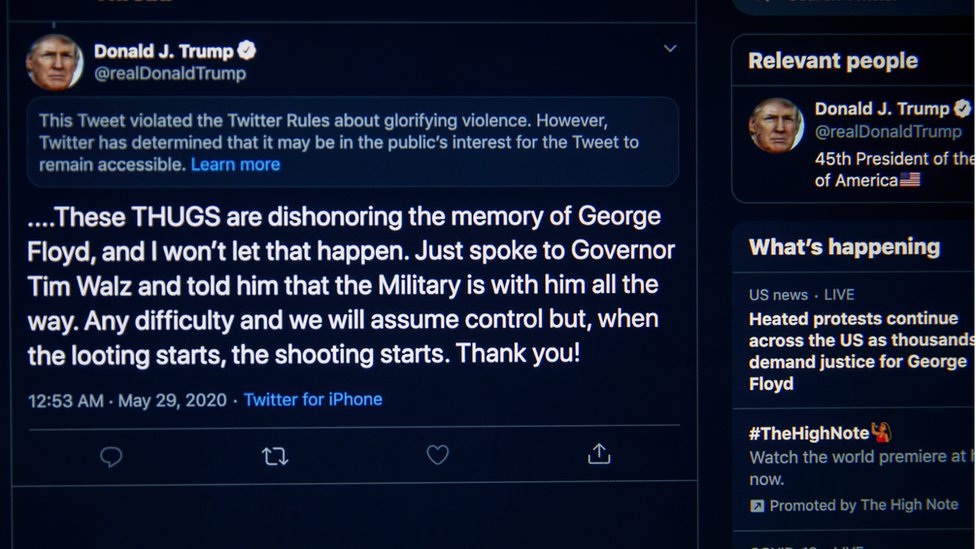
President Trump blames the violence on a lack of leadership in Minneapolis and threatens to send in the National Guard in a tweet. He follows it up in a second tweet with a warning "when the looting starts, the shooting starts". The second tweet is hidden by Twitter for "glorifying violence".
29 May
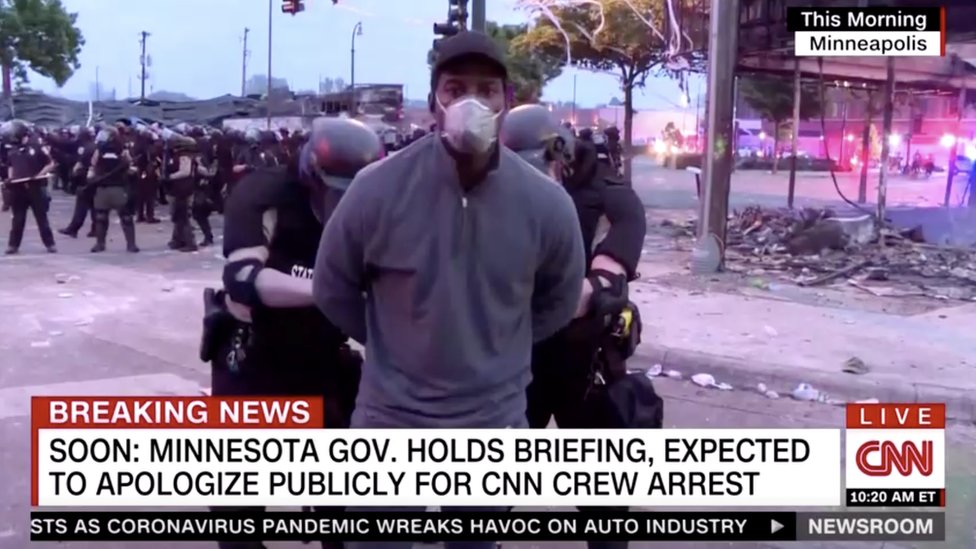
A CNN reporter, Omar Jimenez, is arrested while covering the Minneapolis protest. Mr Jimenez was reporting live when police officers handcuffed him. A few minutes later several of his colleagues are also arrested. They are all later released once they are confirmed to be members of the media.
Derek Chauvin charged with murder
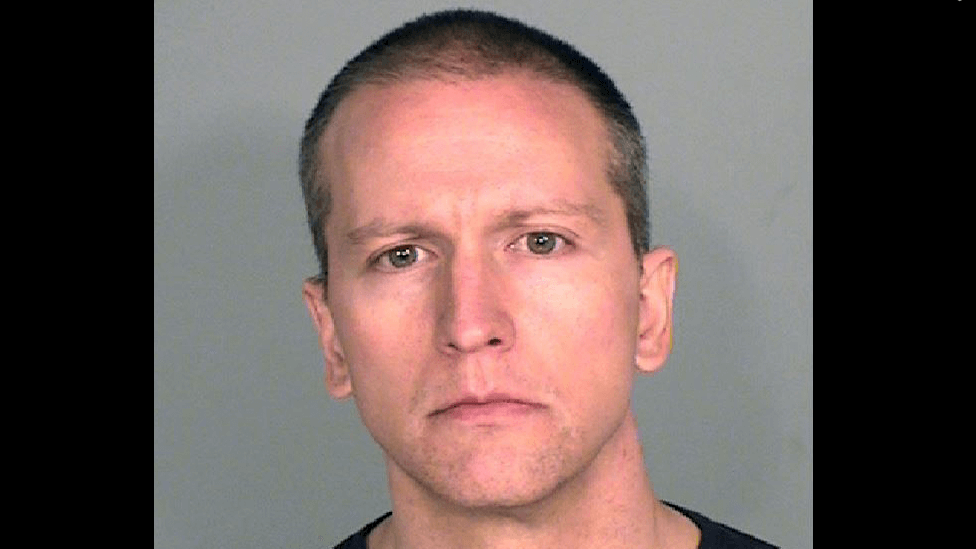
Former Minneapolis police officer Derek Chauvin, 44, is charged with murder and manslaughter. The charges carry a combined maximum 35-year sentence.
31 May



/cdn.vox-cdn.com/uploads/chorus_image/image/65543002/bbc_logo_red.0.jpg)